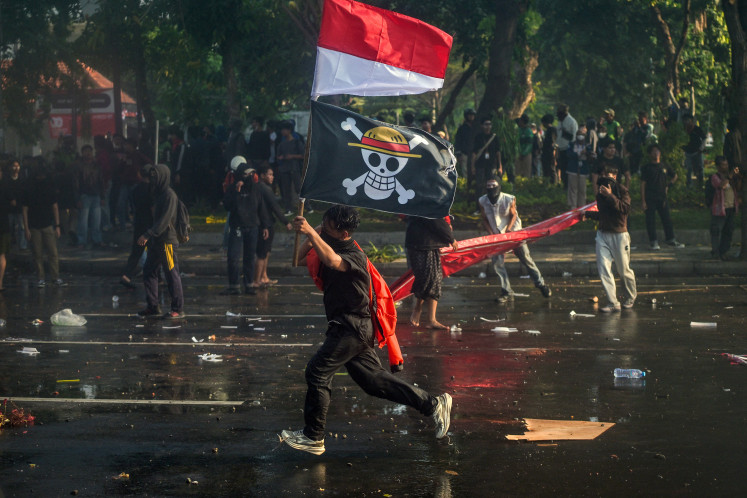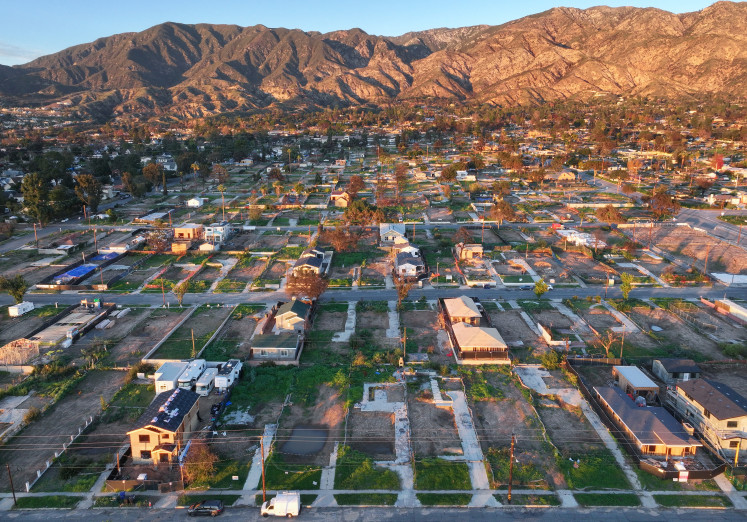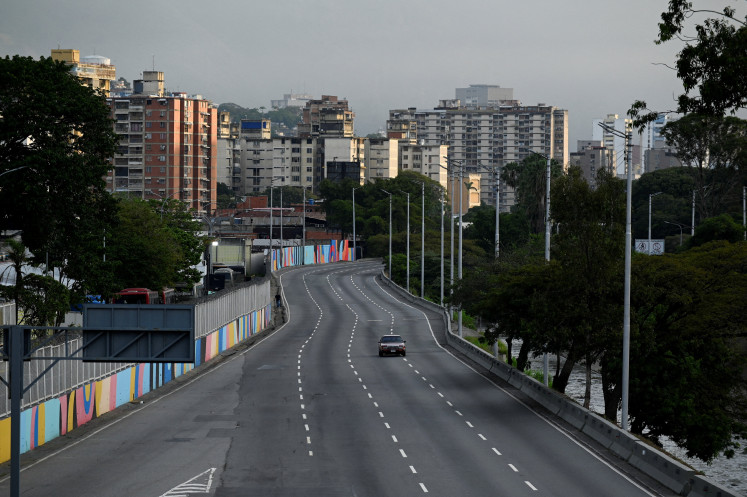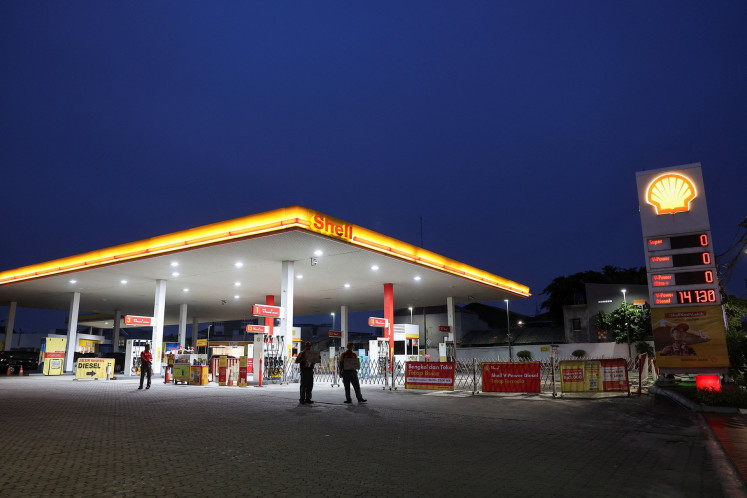Popular Reads
Top Results
Can't find what you're looking for?
View all search resultsPopular Reads
Top Results
Can't find what you're looking for?
View all search resultsHunger, poverty: A global crisis in an age of abundance
Hunger is the most degrading of human deprivations, an attack on life and an affront to freedom.
Change text size
Gift Premium Articles
to Anyone
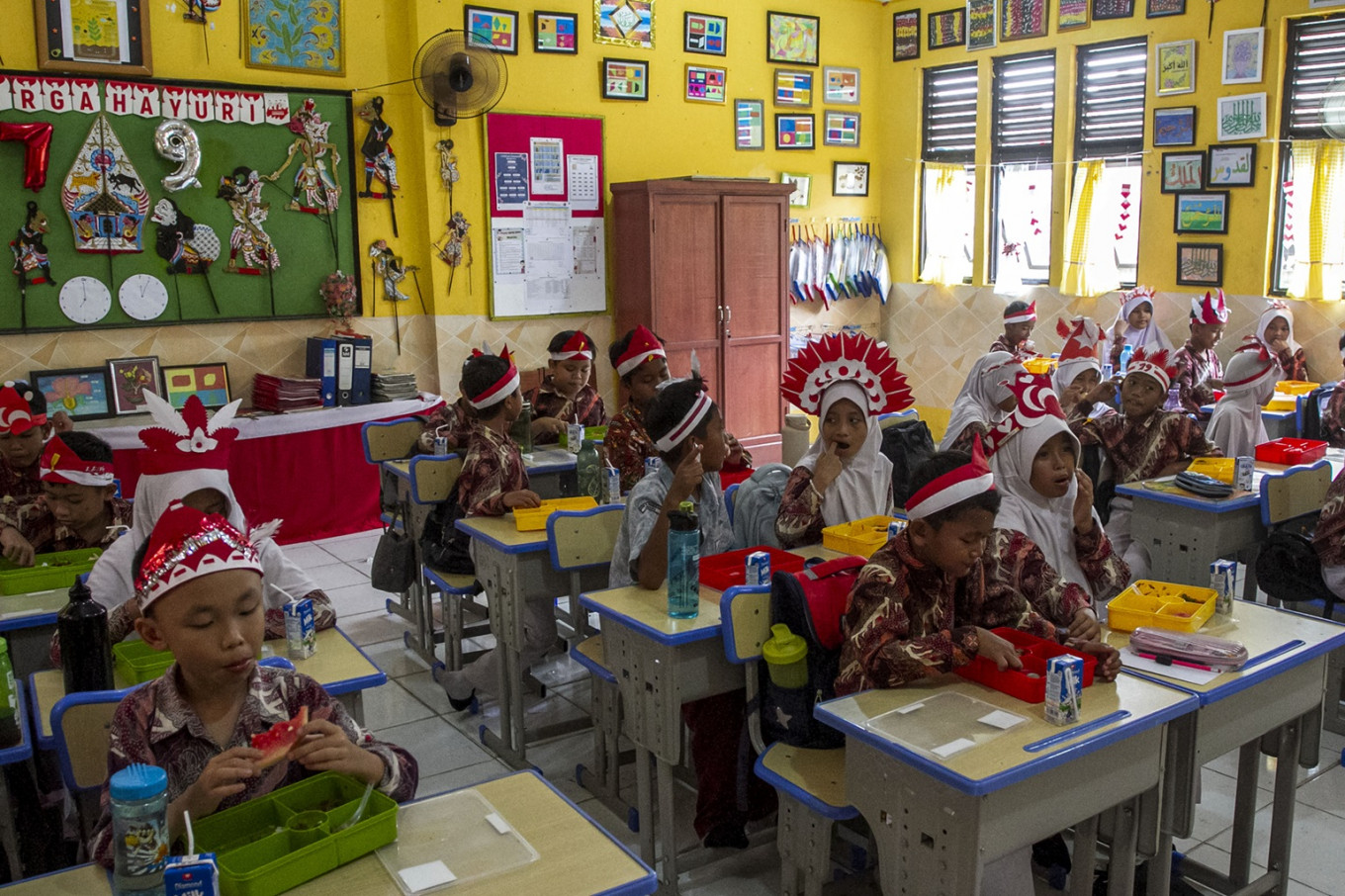 Students eat lunch during the trial of free meals program at the SD Kedaleman IV state elementary school in Cilegon, Banten, on Aug. 21, 2024. The newly established National Nutrition Agency will oversee the implementation of the program, which is part of president-elect Prabowo Subianto's campaign promise during the 2024 presidential election. (Antara/Angga Budhiyanto)
Students eat lunch during the trial of free meals program at the SD Kedaleman IV state elementary school in Cilegon, Banten, on Aug. 21, 2024. The newly established National Nutrition Agency will oversee the implementation of the program, which is part of president-elect Prabowo Subianto's campaign promise during the 2024 presidential election. (Antara/Angga Budhiyanto)

Hunger and poverty are not merely moral imperatives—they are pivotal challenges intricately linked to some of the most pressing global crises, including climate change, public health emergencies and widening inequality.
These deep-rooted issues are aggravated by the absence of robust social protection systems, particularly in low-income nations. Current global financing strategies remain insufficient; they are often fragmented, hampered by high transaction costs and disproportionately focused on small-scale interventions.
As a result, progress toward critical United Nations Sustainable Development Goals (SDGs) has stalled, and in some cases, is regressing.
Since assuming the Group of 20 (G20) presidency in December 2023, Brazil has placed the eradication of extreme poverty by 2030 at the forefront of its agenda. A cornerstone of this effort is the formation of the Global Alliance Against Hunger and Poverty, a task force inspired by Brazil’s own successes in poverty alleviation through programs such as Bolsa Família—a landmark initiative that has lifted millions out of poverty and continues to support over 55 million Brazilians.
On July 24, during a G20 ministerial meeting in Rio de Janeiro, the Global Alliance received unanimous endorsement, marking a historic milestone.
In his address at the event, President Luís Inácio Lula da Silva captured the gravity of the issue, stating, "In the 21st century, nothing is as absurd and unacceptable as the persistence of hunger and poverty when we possess such abundance, scientific breakthroughs and the artificial intelligence revolution at our fingertips. This weighs heavily on our collective conscience. Hunger is the most degrading of human deprivations, an attack on life and an affront to freedom."
The Global Alliance introduces an innovative framework aimed at overcoming the systemic inefficiencies that have long hindered international efforts. By serving as a neutral broker, the alliance facilitates the formation of partnerships between countries, donors and organizations. A central database will help streamline the identification of both expertise and funding opportunities, reducing the barriers that often delay progress.
Central to the alliance’s approach is the “Policy Basket”, a meticulously curated collection of policy tools and strategies, grounded in evidence and rigorously tested for their impact. This "basket" will allow countries to adopt and adapt proven solutions within their own unique contexts.
The platform, built on a collaborative Wiki model, will ensure that its contents remain dynamic and responsive to the evolving challenges of poverty and hunger.
Moreover, the alliance’s governance structure—featuring a high-profile board of champions—adds credibility and mitigates risk, encouraging greater financial commitments from global donors. By promoting the pooling of resources, the alliance seeks to transcend the limitations of isolated, piecemeal initiatives, offering a comprehensive, multisectoral approach to hunger and poverty eradication.
Membership in the Global Alliance is inclusive, extending to UN member states, international organizations, philanthropic foundations and civil society. Entities wishing to join must submit detailed statements of commitment, tailored to their capacities and outlining their contributions to the fight against hunger and poverty.
The flexibility of these commitments ensures that members can refine and adjust their pledges in response to changing circumstances, making the alliance a dynamic and responsive institution.
This paradigm shift in global development efforts holds immense promise. By fostering innovation, enhancing collaboration and grounding its actions in evidence-based policymaking, the Global Alliance aims to accelerate progress toward a world free from hunger and poverty.
Its demand-driven, country-led model empowers nations to enact transformative policies that prioritize the most vulnerable populations, setting the stage for a more equitable and prosperous global future.
For countries like Indonesia, the alliance offers a valuable opportunity. Indonesia stands to benefit by enhancing its national social programs or securing international support for initiatives such as the forthcoming free meals program, which is being developed under the guidance of president-elect Prabowo Subianto.
Brazil, with its rich expertise and as the cochair of the School Meals Coalition alongside France and Finland, has already expressed its eagerness to assist Indonesia in crafting a successful school meals initiative, which could improve the lives of millions of Indonesian children.
The Global Alliance Against Hunger and Poverty represents not just hope, but a coordinated, strategic effort to ensure that in a world of technological and agricultural abundance, no human being has to suffer the indignity of hunger.
***
The writer is ambassador of Brazil to Indonesia.





